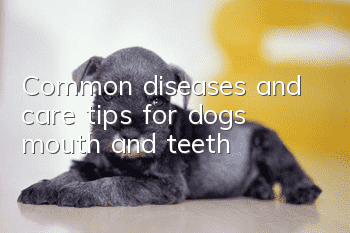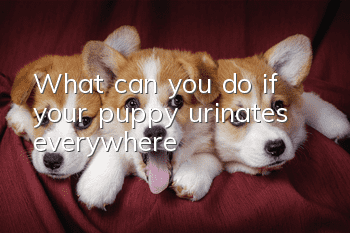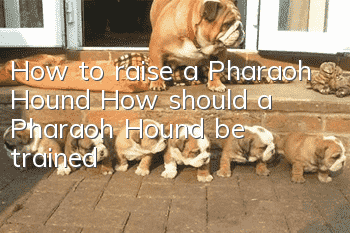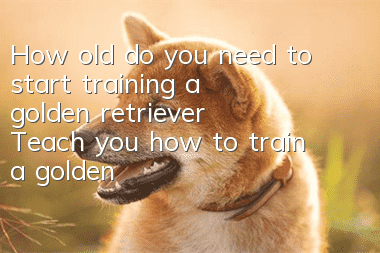Common diseases and care tips for dogs’ mouth and teeth!

As the saying goes: Toothache is not a disease, it hurts terribly. Dogs are more tolerant of pain than humans, so by the time you notice a problem with your dog’s teeth, it may already be serious. Here are some common dental and oral diseases for dogs. I hope it will be helpful to you~~~
1. Dental calculus
Dental calculus is mostly caused by a mixture of food residue and bacteria, which is the main culprit of periodontal disease and bad breath. If dental calculus forms on a dog's teeth, it is very difficult to remove. Therefore, the owner must clean the dog’s teeth regularly and take it to the veterinarian for teeth cleaning when necessary.
2. Gingivitis
Gingivitis is the precursor of periodontal disease. The place where the teeth and gums meet is called the "gingival sulcus". Because dogs don’t know how to clean their teeth, after eating countless times, their gums will accumulate a lot of food residue, causing bacteria to grow indefinitely. After mulberry bacteria invade the gums, they will also inflame the gums and make them painful.
3. Periodontal disease
If the owner does not take care of his dog's teeth, calculus will grow on his dog's teeth over time. If the situation does not improve, the accumulation of calculus will become periodontal disease. Periodontal disease also causes inflammation, abscess, and bleeding of the gum tissue, severely destroying the gum tissue, causing the teeth to shake significantly, and eventually leading to tooth loss. Therefore, periodontal disease is a very serious dental disease. Once you find that your dog has periodontal disease, you must take it to a veterinarian for treatment immediately.
4. Tooth decay
In addition to people, dogs can also suffer from tooth decay. The cause of tooth decay is that food residues accumulate in the mouth, and bacteria will continue to grow using the food residues as nutrients. While multiplying, they will also produce an acidic substance. When the teeth interact with this acid After contact with the substance, it will slowly dissolve the calcium in the teeth and form dental caries, which is tooth decay. Tooth decay can also cause pain in the dog's gums, tooth necrosis, and a significant loss of appetite.
5. Malocclusion
The reasons for this situation can be divided into two types: one is that there is a problem when the dog's upper and lower jaws are developing, causing them to be unable to open and close normally. Second, when the permanent teeth first erupted, they were pushed up by the temporary teeth, causing ectopic growth. If a dog suffers from a malocclusion, the teeth will get stuck when the dog closes its mouth, affecting its ability to eat.
6. Broken teeth
Dogs naturally like to chew things, and sometimes they will chew stones to make their teeth more likely to break. Some very active dogs will run around and break their teeth. In addition to these conditions, some dogs may also develop this problem due to old age.
7. Tongue abscess
Once the sublingual salivary glands are blocked, fluid will appear on the underside of the tongue.A large lump on the body is a sublingual abscess. If the owner discovers that his dog has this disease, he must immediately go to the veterinarian for surgery to drain the fluid. The obstruction may be caused by a stone or even a grass seed.
Friendly reminder
If you want your dog to have a healthy body and strong teeth, the owner should not be afraid of trouble and not provide it with any health care. Because, when you find that your dog’s teeth have problems, they may already be serious~~Early detection and early treatment are very important!
- Does leashing your dog help train your dog? Leash dog training!
- Dog tapeworm symptoms and treatments
- What is the best medicine for Akita kennel cough?
- How to use external insect repellent spray for dogs and precautions
- My dog has been coughing for a month and it’s still not cured
- Postpartum hypocalcemia symptoms in dogs
- Can canine distemper spread to humans?
- What are the benefits of dogs eating salmon?
- What foods are good for dogs’ health?
- What should I do if my dog smells bad at home?



